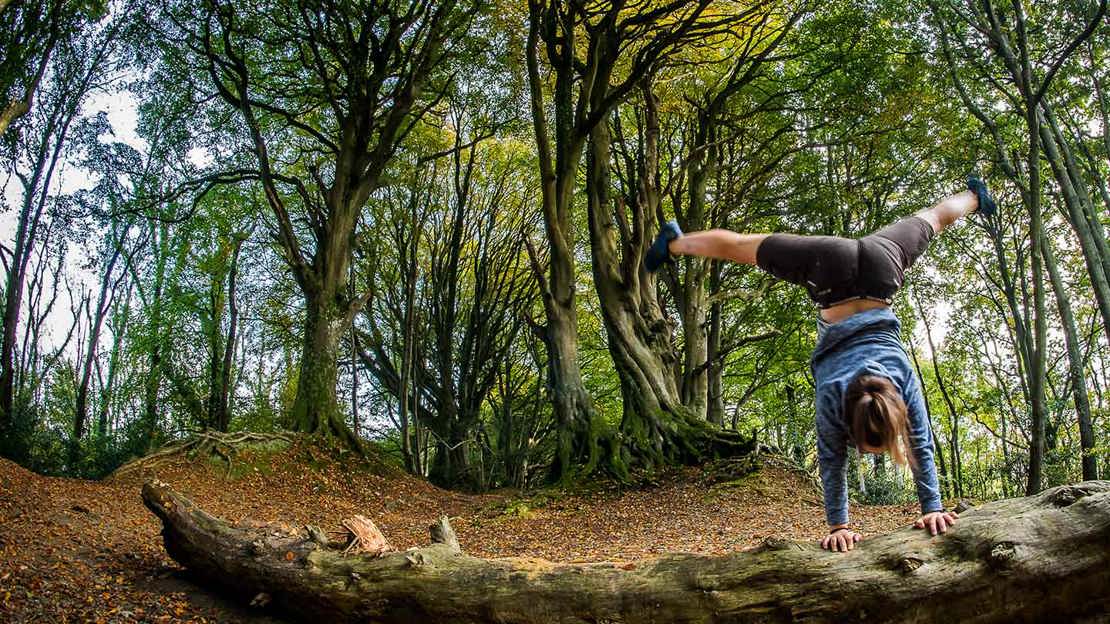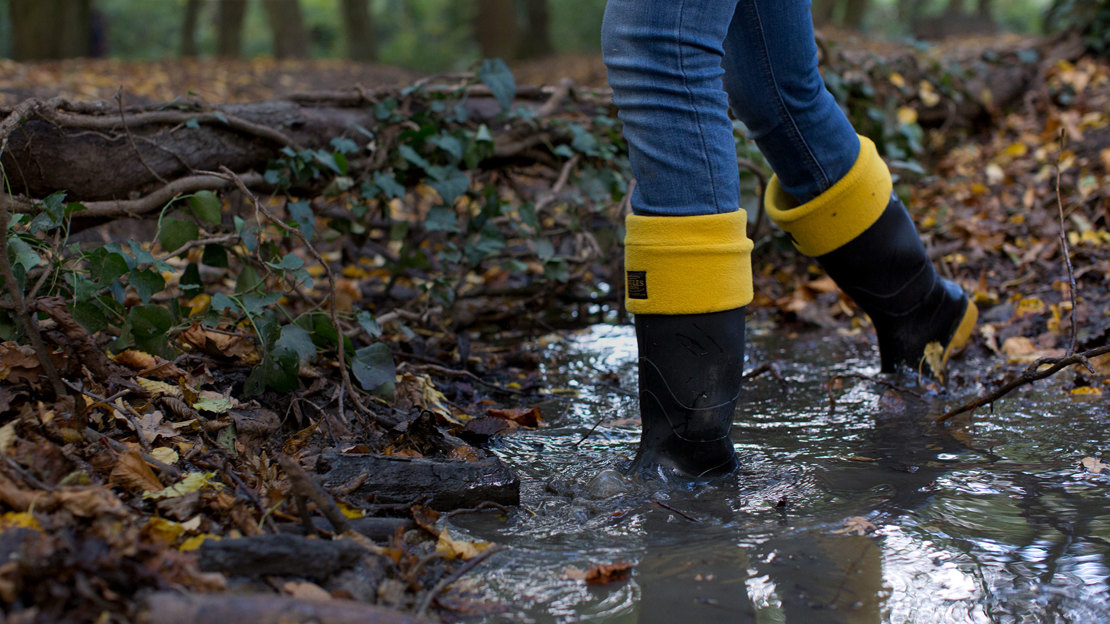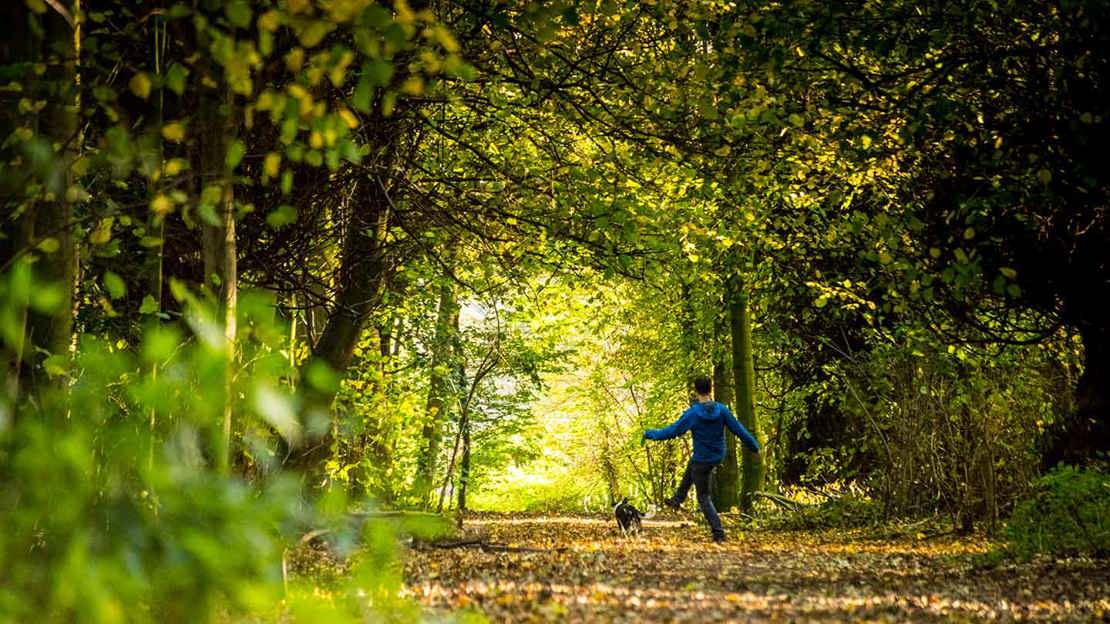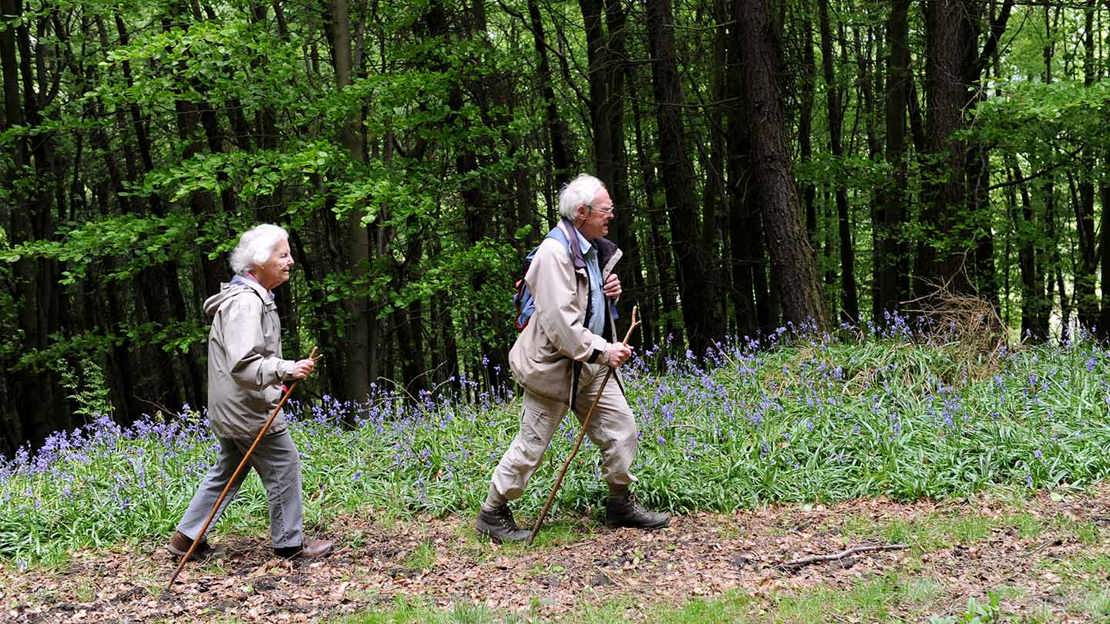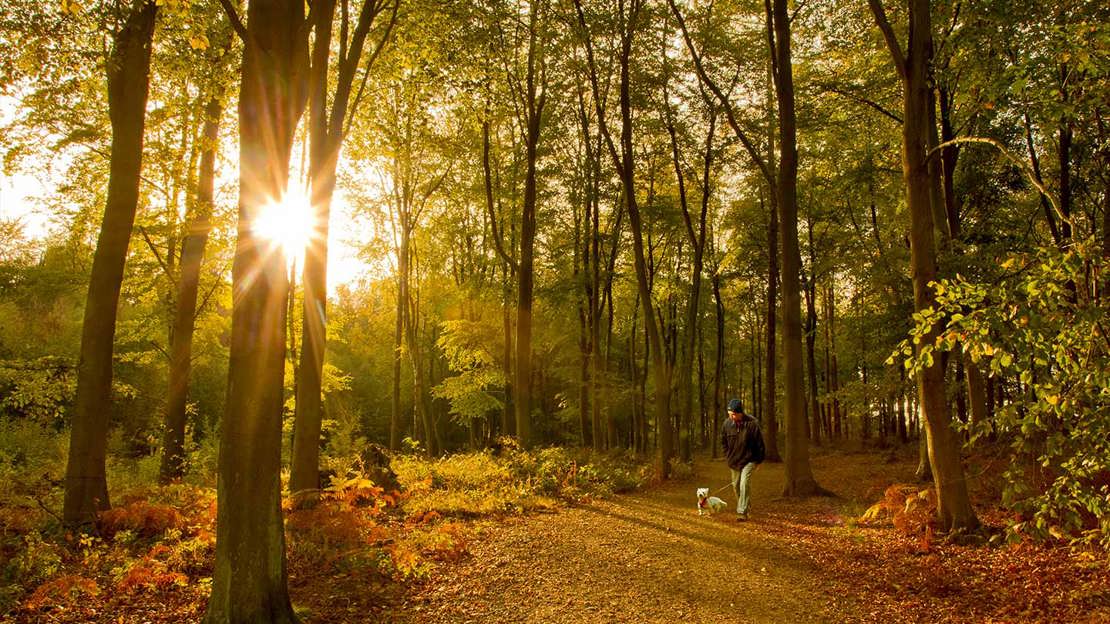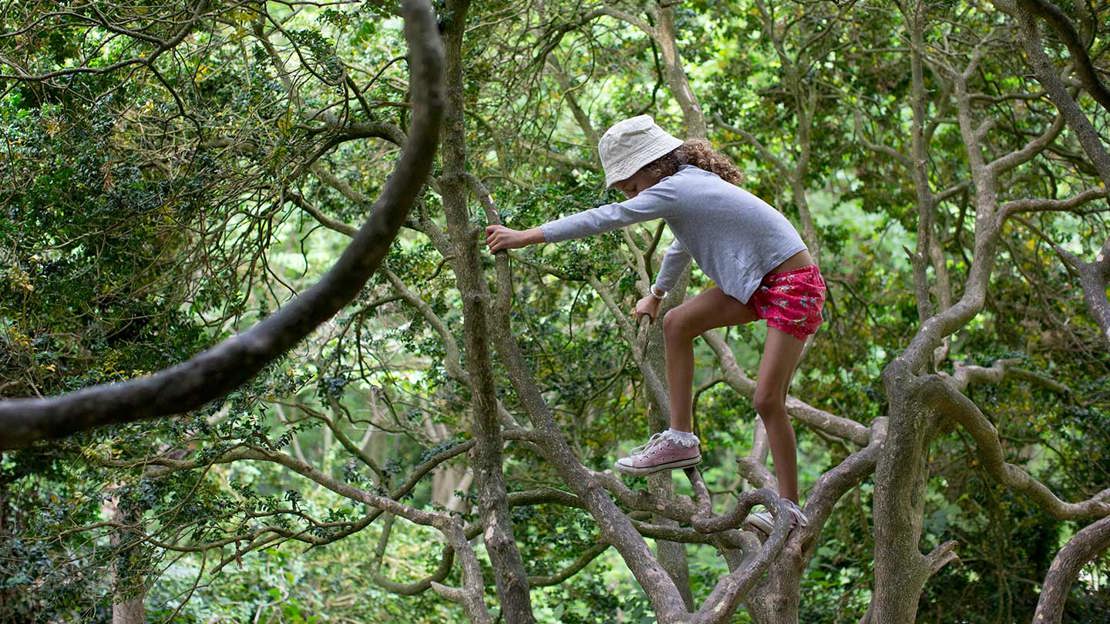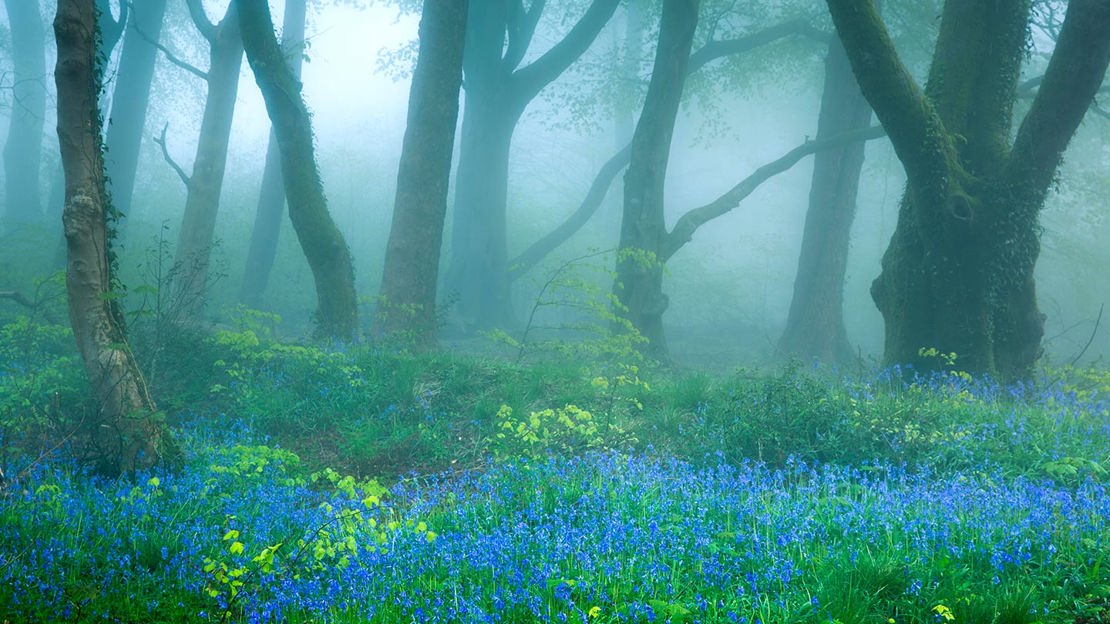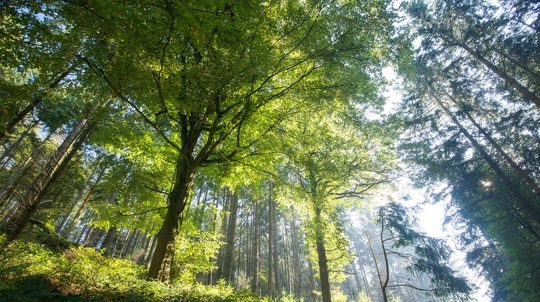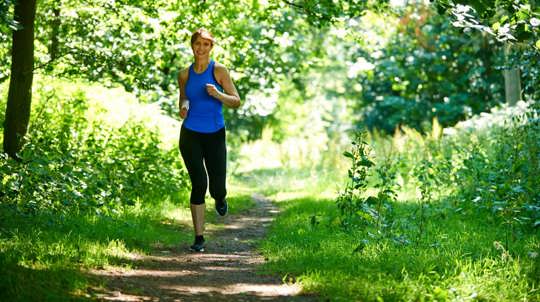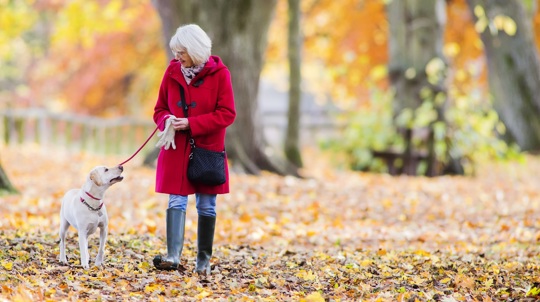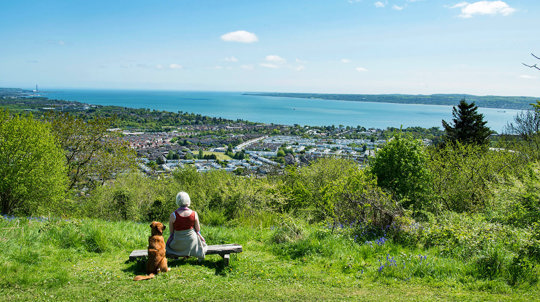Why woods are good for our health and wellbeing
Woods and trees can improve our health and wellbeing in many ways, including reducing stress, improving mood, and boosting the immune system.

Woods and trees are good for our health and wellbeing.
Many of us feel this intuitively. But there is also an ever-growing mountain of scientific evidence, brought into even sharper focus since the coronavirus pandemic, that's painting a picture of the health benefits of trees, woods and the natural environment.
Discover how we're fighting to ensure more people have access to woods and working with experts nationwide, launching health programmes and researching the benefits that nature and woods bring.
Nature makes us better
Along with improving our quality of life, green spaces can help to make us physically healthier and improve our mental wellbeing.
Nature alleviates stress, stabilises blood pressure and treats anxiety and depression. Its effects have even been shown to increase anti-cancer cells, reduce the incidence of underweight births, and accelerate recovery from surgery.
In recent research, around 90% of people said that experiencing woodland biodiversity, like hearing birdsong, boosts their wellbeing. The research also revealed that woodland smells, colours, textures, sounds, shapes and wildlife behaviours enhance wellbeing too. Next time you're in nature, use your senses to experience all it has to offer. Why not join our activity to spot spring's vital signs?
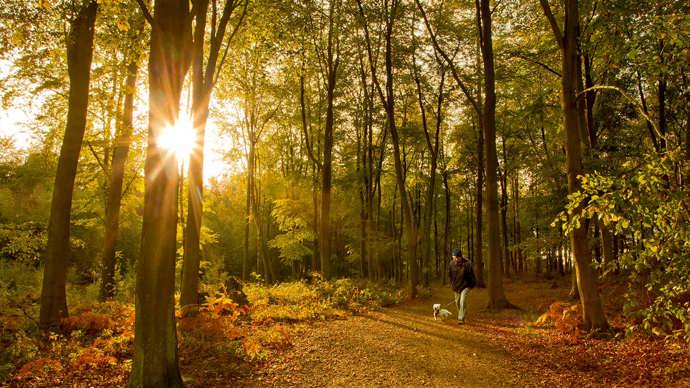
Credit: Ben Hall / naturepl.com
Mental health
1 in 4 people will be affected by mental illness at some point during their lifetime. Statistics also show that mental health issues are more common, long-lasting and impactful than other health conditions. Spending time in nature is a great way to support mental health, as it can boost mood and decrease stress.
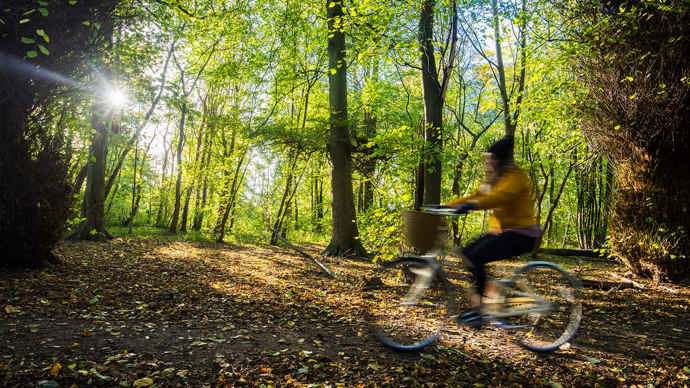
Credit: Jill Jennings / WTML
Physical health
Lack of exercise is a well-known problem in UK healthcare. A quarter of adults are obese, and physical inactivity is predicted to cost the NHS £10bn a year by 2050. Exercising in nature can offer a better workout, increase your vitamin D and provide a much more pleasant setting than your average gym.
We are nature. And what the evidence shows is that spending time in the outdoors isn’t just a luxury or a leisure activity - it’s a human need.
What we're doing
Yet not everyone can take advantage of this nature prescription.
According to our most recent estimate, in 2020, just 16.2% of people have easy access to a wood of at least 2ha within 500m of their homes. With 13% of people in the UK also lacking access to a garden, woodland and green spaces are more essential than ever.
The closer our homes are to green spaces, the more likely we are to use them. This is why we are committed to making the case for accessible woodland close to where people live.
How we're fighting for green spaces for all
- Supporting the expansion of tree cover to increase UK woodland cover from its current 13% of land area to 19% by 2050.
- Campaigning to protect woods and trees through the planning system, ensuring their role as a public health resource is safeguarded for future generations.
- Increasing public involvement in the planning and management of green space. Processes such as neighbourhood planning should generate opportunities for community care for nature.
- Recognising the savings to the public purse that can be achieved by using wooded green space as a preventative health care tool. This is particularly critical in the design of new developments. This should be complemented by increased resources to encourage active and healthy lifestyles through visits to woods close to where people live.
- Making woods more accessible. We want to promote a long-term connection with nature, to make existing woods more accessible with new footpaths, close to where people live. We're adopting standards that ensure everyone has reasonable access to woodland.
- Nobody should live more than 500 metres from accessible woodland of no less than 2 hectares.
- There should also be at least one area of accessible woodland of no less than 20 hectares within 4 kilometres of people’s homes.
- Promoting learning and understanding of woods and trees at all levels. Increased appreciation of the environment starts at school, and around 23% of all UK schools have applied to plant native trees with us since 2017, with 40% of all schools (12,830) taking part in our Green Tree Schools Award which promotes environmental awareness and action. And learning doesn't stop at the school curricula. Our work permeates all levels of education from college and university courses to communities and professionals such as land-use planners, woodland managers, and arborists.
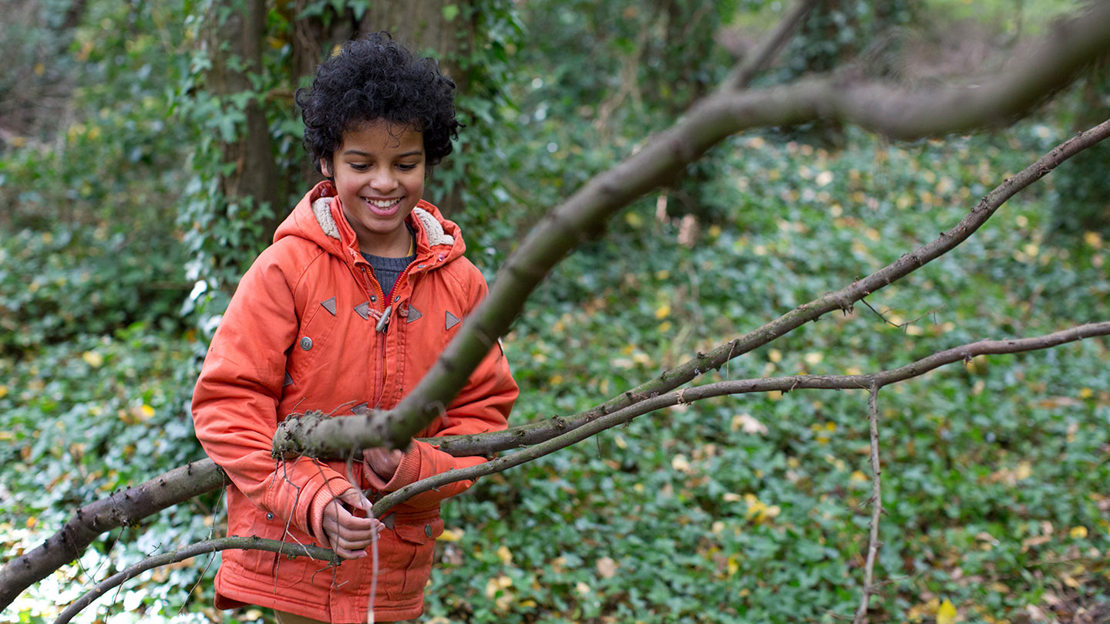
Nurturing through nature in our woods
Smithills Estate, Lancashire
The Smithills Estate team has been active in the local community from the very start. In the early days of the Smithills Estate project, which was funded by the National Lottery Heritage Fund and ran from 2017–2023, the team hosted wellbeing walks in partnership with local groups. These included walk and talk sessions with the Bolton Council of Mosques, where 65 people with anxiety and agoraphobia could gain confidence in the outdoors, and respite walks with the Greater Manchester Mental Health NHS Trust, where people caring for loved ones with schizophrenia could slow down and relax in nature.
Now, walks around our wild and windswept site are still being used as a powerful tool for wellbeing. With funding from the Linbury Trust, the Smithills team runs monthly dementia-friendly events including walks designed to suit all abilities. Around 40 people have attended so far, enjoying tea and cake before and after each walk. The team also runs green social prescribing sessions in partnership with Bolton GP Federation – an innovative approach to mental health support which integrates community and nature-based activities with healthcare to improve mental and physical wellbeing.
Fingle Woods, Devon
Dr Lucy Loveday works with our team at Fingle Woods and has piloted a scheme to help troubled young people gain access to green spaces through the NHS, known as the Resilient Young Minds programme. It’s designed to help local people facing addiction issues, homelessness and clinical depression into the woods, and involves everything from fire-building to photography. So far it's been a resounding success, with patients seeing immediate improvement in almost every measure, from confidence and mood to independence and awareness.
The team have run more than 50 sessions for hard-to-reach groups in the region so far, touching the lives of 325 vulnerable people through forest schooling for troubled pupils, guided walks for the disabled and many more invaluable initiatives.
It's now been accepted by the local NHS primary care network, and GPs across North Dartmoor can now refer their patients directly into the woods. Gaining the NHS’s support is a monumental step, since mental health costs the NHS more than £22bn every year in England alone, and the wider knock-on effects cost the economy another £77bn.
While the scheme is currently funded entirely by the Woodland Trust, investing £10,000 of National Lottery funding, it is hoped that green prescriptions will be placed at the heart of UK healthcare with NHS groups funding similar projects nationwide.
Great Chart Wood and Packing Wood, Kent
'Green Gyms' are becoming a regular fixture in green spaces across the UK. Despite the name, these 'gyms' are less about barbells and bench presses and more about keeping woods and other green spaces spick and span.
Woodland Trust woods Great Chart and Packing are often visited by Ashford Green Gym. It was set up in 2008 and it’s the largest self-funded group in a network of almost 50 across the UK, mostly overseen by the conservation volunteering charity TCV.
Groups of volunteers take part in the green gym movement by getting together on a weekly basis to work on keeping woods looking their best, helping out with activities such as coppicing, hedgelaying and trail clearing.
Research has shown a session in a green gym can burn up to a third more calories than an aerobics class, while a study from the University of Westminster has shown those working in green gyms saw their cortisol awakening response - that's the change in cortisol concentration that occurs in the first hour after waking from sleep - boosted by up to 35%.
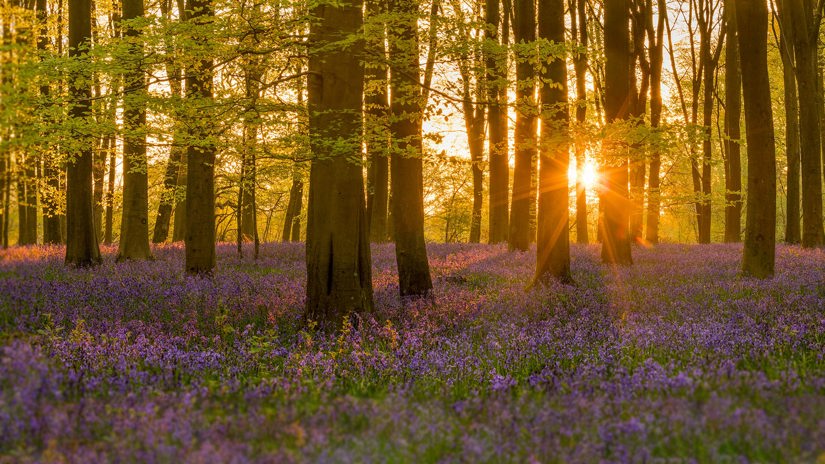
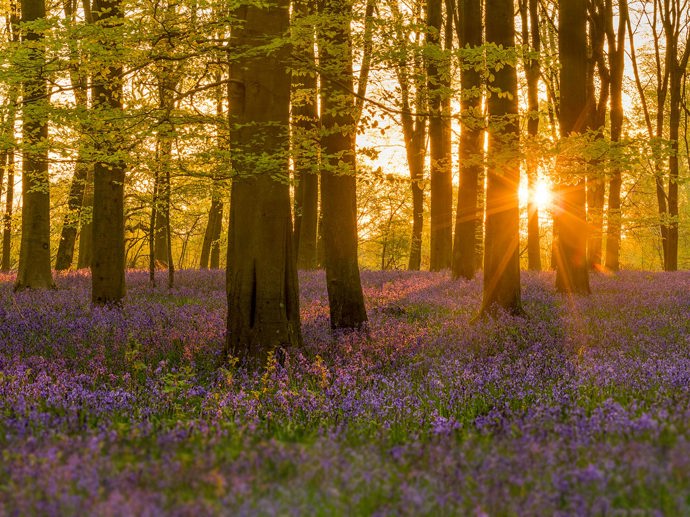
Get your nature therapy
We look after more than a thousand woods across the UK. They're open and free for you to explore.


